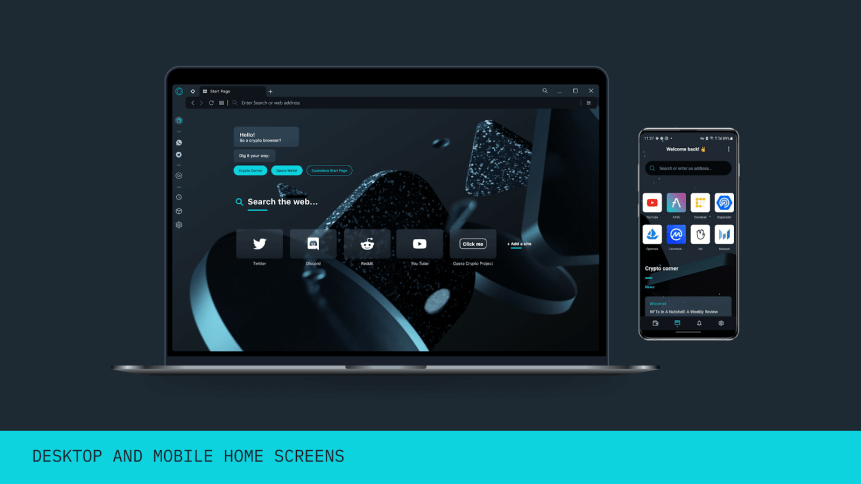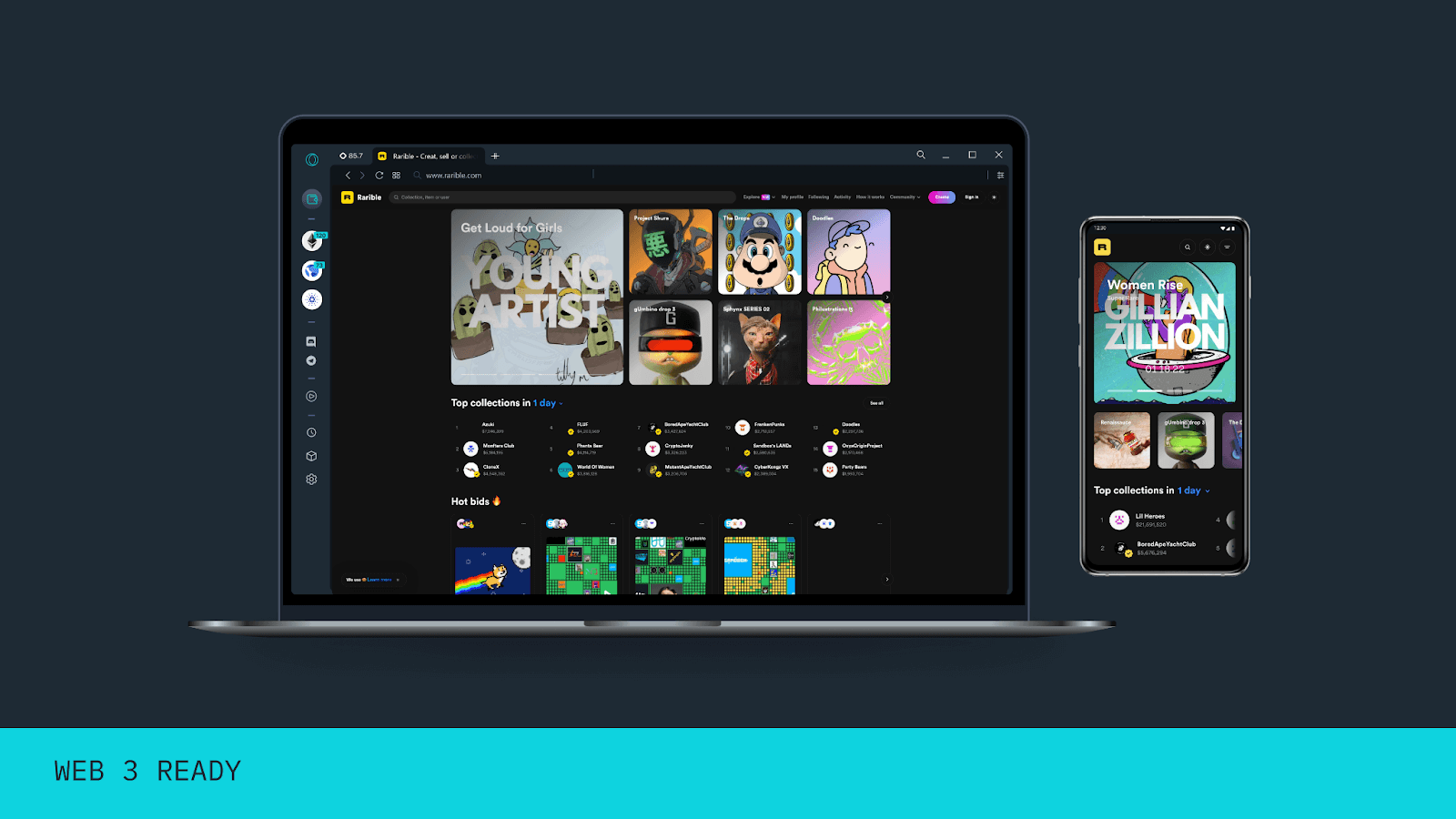Web3: An internet powered by and for its users

- While still mostly a buzzword, Web3 is dubbed as the future of the internet, coming after Web 1.0 & Web 2.0
- So far, Opera has launched its Web3 “Crypto Browser” in beta on Windows, Mac and Android
The term Web3 has been garnering much of the online world’s attention lately. While it is not something new, it is at its core, the future of the internet that promotes decentralized concepts mainly to reduce dependency on Big Tech like Meta, Google and Amazon. Like Web 3.0, it has been a slowburning buzzword — that is, until Opera launched a beta version of its “Crypto Browser Project” this week — an internet browser with built-in Web 3 integrations.
To begin with, the term Web3 was first coined by Gavin Wood eight years ago. In a 2014 blog post, Wood reckoned how “entrusting our information to organizations in general is a fundamentally broken model.” He basically sold the idea that the future of the internet is a place where ownership and power are more widely and evenly distributed.
To be precise, Wood’s vision is based on transparent digital ledgers known as blockchains — the technology that underpins cryptocurrencies — and with that, ‘Big Tech’ companies will be rivaled by more democratized forms of internet governance, where the user will get a say. “Web 3.0, or as might be termed the “post-Snowden” web, is a re-imagination of the sorts of things we already use the web for, but with a fundamentally different model for the interactions between parties,” he said.
Elaborating further on this, he added, “Information that we assume to be public, we publish. Information we assume to be agreed upon, we place on a consensus ledger. Information that we assume to be private, we keep secret and never reveal. Communication always takes place over encrypted channels and only with pseudonymous identities as endpoints; never with anything traceable (such as IP addresses).”
In short, Wood said it is an internet where the users engineer the system to mathematically enforce their prior assumptions, “since no government or organization can reasonably be trusted.”
What is Opera’s Web3 browser all about?

Web3 by Opera
A blog posting by Opera confirms they are providing users and the industry with a “dedicated Web3 browser, backed by a strong product team and with the aim of accelerating the evolution of the next generation of the Web.”
“Today, we’re unveiling our new Crypto Browser Project, with beta versions of the new web browser immediately available for PC, Mac and mobile phones, delivering a new web experience with Web3 at its core,” the company said yesterday.
Essentially, the Opera Crypto Browser Project is specifically designed to work with a variety of decentralized apps, or dApps, as well as provide deeper functionality than a traditional browser that has a basic web wallet add-on. “This is possible thanks to a wide array of built-in, Web3 focused features, as well as the inherent speed that Chromium already offers the suite of Opera browsers,” it added.
Users will be provided access to the latest blockchain news, upcoming airdrops, an industry events calendar, NFTs, crypto communities, educational content, podcasts and videos as well as crypto prices, gas fees and market sentiment – all in a Crypto Corner spot. And Opera isn’t new to the Web3 space.
In 2018, they launched the world’s first browser with a built-in crypto wallet. “Since then, we have continued to push forward, removing some key hurdles associated with the use of crypto, including making crypto top-ups seamless and available directly in the wallet, and allowing you to send crypto and NFTs directly to other people. We have also integrated multiple blockchains, including Ethereum, Bitcoin, Celo and Nervos, and announced partnerships with Handshake, NEAR, Polygon and Solana,” it said.
How does the future internet differ from its predecessors?
The idea, from general understanding, stems from the idea of how the internet has been functioning. It started with Web 1.0, the first World Wide Web that took off in popularity via web browsers like Netscape in the 1990s, followed by Web 2.0 a decade later. Web 2.0, the era of internet we are currently in, saw the birth and rise of mega-platforms like Google and Facebook. With Web 2.0, there was rapid development of easy-to-use tools that let anyone create content online.
Eventually, people began realizing the way their personal data was being harvested by tech giants to create tailored advertisements and marketing campaigns. Take Facebook for an instance, the company, now known as Meta, has had the spotlight shone on it innumerable times for breaching data privacy laws and was hit with a US$5 billion fine in 2019 – the largest penalty ever issued by the Federal Trade Commission (FTC.)
So the idea of Web3 brought by Wood is indirectly hinting that there is a massive failure of technology in the current Web 2.0, including failure of governance and regulation as well as policies surrounding competition. What Wood is suggesting as a solution is not for better regulation. Instead, he reckons there needs to be an added layer of technology, because regulatory failures are inevitable.
So far, prominent figures like Twitter’s Jack Dorsey have decried the buzzy tech trend, telling consumers to be wary and dismissing it as a tool for venture capitalists hyping cryptocurrency. Tesla’s CEO Elon Musk trolled it by saying, “Web3 sounds like bs.” On the other hand, Tim O’Reilly, the author who coined the phrase Web 2.0 back in 2004, also warned it was too early to get excited about Web3.
As it is, Web3 is still merely a buzzword that has yet to materialize. While it may not prove to be as benevolent as is hoped, it is as proponents say it, the future — like cryptocurrencies and the metaverse.










